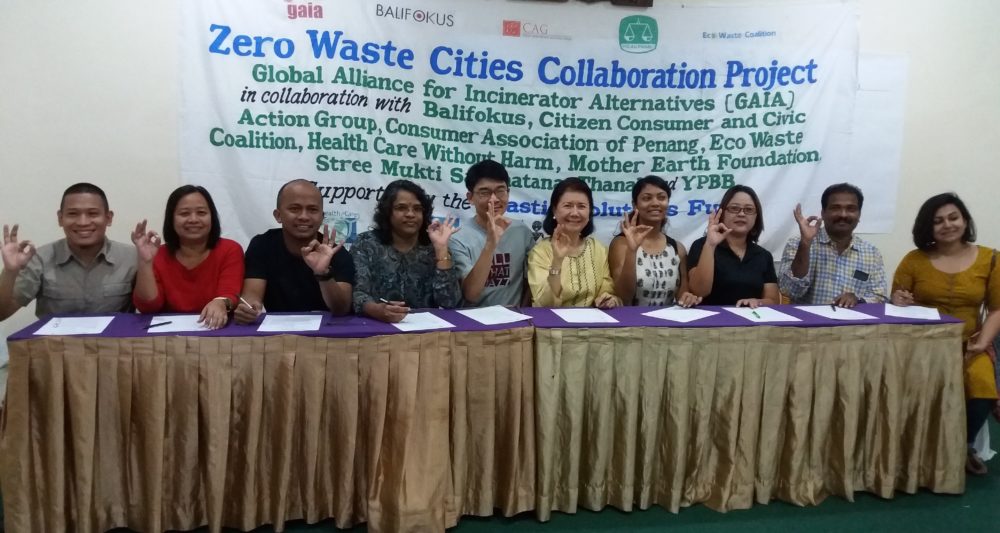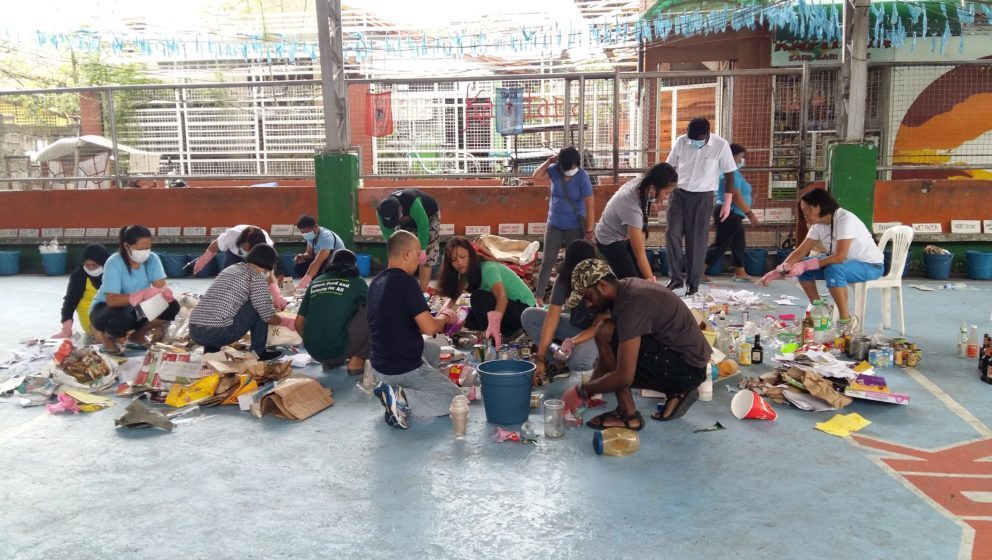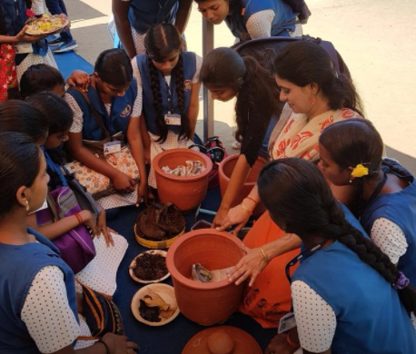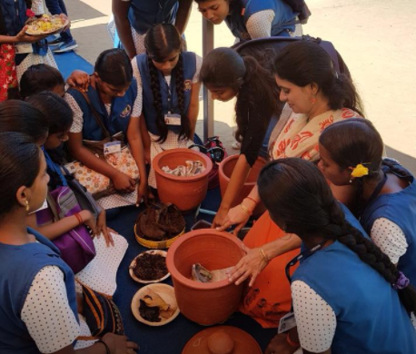By Kripa Ramachandran
In 2015, a report titled ‘Stemming the Tide’ commissioned by Ocean Conservancy, an environmental advocacy group based in the United States, claimed that five Asian countries—China, Indonesia, Philippines, Vietnam and Thailand—together account for between 55 and 60 percent of the total plastic waste leakage (Ocean Conservancy, 2015).
The report strongly recommended incineration technologies as one of the primary “solutions” to address plastics leakage. The report deserves to be condemned for its two-fold fiasco: for framing the global south as the problem site with limited evidence, and for proposing myopic and disastrous solutions.
Narratives like these not only frame an issue in a particular way but also elicit responses that are often problematic. The report framed Asian cities as the epicentre of the leakage problem without a balanced appreciation of the frontline efforts in these countries. As the response of the Global Alliance for Incinerator Alternatives (GAIA) to this report pointed out, ‘it is alarming that it (the report) is recommending to increase incineration rates in the countries mentioned, when citizens of these countries already struggle with so much air pollution in their cities’ (GAIA, 2015).
Narratives such as these rapidly find their way into the popular discourse and become the basis of people’s opinions and evidence that informs public policy. More often than not, they reflect and serve to organise a particular understanding of the problem without taking into account the efforts of the organisations and cities that are working hard to promote local solutions to waste and wasting based on shifting mindsets (GAIA, 2015).

It is important to recognize that for any given issue, it is possible to identify multiple narratives, each suggesting different pathways to sustainability. Some exist, some are hidden, often deliberately and some are only, currently, imagined (Leach, 2010). Therefore, challenging these dominant narratives and pathways, and highlighting alternatives, including those reflecting the perspectives and priorities of poor and marginalised people in particular settings is more important than ever (Leach, 2010).
Asian countries that were censured by the aforementioned report have imaginative and positive responses to plastic pollution that deserve to be brought to the fore. Whether by an effective policy advocacy, grassroots organizing, or community education, communities in these countries are effectively mitigating the effects of this looming ecological disaster, whose source is often traceable to global businesses.
Yet, to vilify these countries and their people without a balanced assessment of the counteractive efforts is to undermine the efforts of some of the well-meaning and earnest local champions in these countries. These lesser-known stories deserve to be told urgently now, for these ecological solutions are important in not just turning around the issue of waste, but because a consolidated wisdom and experience of these countries can lead global efforts for sustainable, people-centred, and climate-appropriate responses to the waste crisis.
It is in this backdrop that efforts like the ‘Zero Waste Cities Collaborative’ (ZWC Collaborative) are important.
Making “cities and human settlements inclusive, safe, resilient and sustainable” is one of the most critical Sustainable Development Goals of our times, with Goal 11.6 aiming to “by 2030, reduce the adverse per capita environmental impact of cities, including by paying special attention to air quality, municipal and other waste management.”

Fortunately, this transition towards building a ‘sustainable city’ has already begun in the global south, and the ZWC Collaborative is exemplary of select cities forging a way forward. The ZWC collaborative is a quintessential South and Southeast Asian effort of 16 cities in Indonesia, the Philippines, Malaysia, and India that are working on local waste management policies in these cities.
The ZWC Collaborative amplifies and facilitates an exchange of knowledge about the actions that local organisations and activists take to shape public policy and implement strategies that are appropriate for their contexts. Such a global stage for the collective voices of these developing countries that are becoming increasingly active participants in global policy-making (Kaul, 2013) is the need of the hour.
The International Zero Waste Cities Conference (IZWCC, 2018) at Bandung, Indonesia on March 5-7, 2018 with its theme ‘Circular City is the Future City’ was one such opportunity. Over these three days, policy-makers, bureaucrats, activists, grassroots organizers, social workers, and researchers gathered to share stories from their cities, barangays, kelurahans, and wards.
Whether it was robust grassroots education and training in the Philippines, as undertaken by Mother Earth Foundation, or low-cost, frugal technologies for composting, demonstrated by YPBB, Indonesia, or, participatory action planning by Citizen consumer and civic Action Group (CAG) in India, or, effective policy enforcement in Thiruvananthapuram City, India, there was no dearth of positive actions worth replicating from these regions.
A recurrent theme through the conference though, was the common understanding that cities and city governments bear the brunt of managing waste. Much of this waste is the result of poor product design and delivery by businesses, and it is they who must be made liable and accountable. But do city governments have the power and autonomy to resist and combat this financial and ecological burden in their own contexts? In India, for instance, it has been 25 years since the enactment of the 74th Constitutional Amendment, which heralded decentralised governance. However, municipal governments remain mere creatures of state governments with neither the necessary strategic flexibility nor political legitimacy (Sivaramakrishnan, 2013). Similar contextual and implementational challenges in governance and democratic engagements were adduced by representatives from the Philippines and Indonesia.
A collection of these experiences by the cities and the different actors and stakeholders over these three days showed that solving this mammoth problem requires more than mere technocratic fixes. It is a part of the larger web of decisions that affect governance, public health, equity, power and at the heart of this lie, people and their realities.
While we may have more pressing issues and confrontational questions along the way, the collaboration has opened up opportunities for collective reflection on local initiatives and latest technological innovations, to redefine the relationship amongst actors contributing to urban waste management and the preservation and transformation of organizations and informal sectors, among other things. As they say, the secret of getting ahead is getting started and this start is as good as any, to create sustainable and just environments for everyone.

————–
KRIPA RAMACHANDRAN is researcher at the Citizen Consumer and Civic Action Group based in Chennai, India.
This article appears on the first issue of Waste Not Asia, the official publication of GAIA Asia Pacific.
(Waste Not Asia, Vol. 1, Issue 1, January to March 2018. pp. 22-25.)
References
- Global Alliance for Incinerator Alternatives. (2015). Technical Critique of “Stemming the Tide.”
- Kaul, I. (2013). The Rise of the Global South: Implications for the Provisioning of Global Public Goods.
- Leach, M. (2010). The Pathways Approach of the STEPS Centre. From Dynamic Sustainabilities: Technology, Environment, Social Justice part of the Pathways to Sustainability book series. Brighton.
- Ocean Conservancy. (2015). Stemming the Tide: Land-based strategies for a plastic- free ocean. Retrieved from https://oceanconservancy.org/wp-content/uploads/2017/04/full-report-stemming-the.pdf
- Sivaramakrishnan, K. C. (2013). Revisiting the 74th Constitutional Amendment for Better Metropolitan Governance. Review of Urban Affairs, 48(13), 86–94.
By Kripa Ramachandran
In 2015, a report titled ‘Stemming the Tide’ commissioned by Ocean Conservancy, an environmental advocacy group based in the United States, claimed that five Asian countries—China, Indonesia, Philippines, Vietnam and Thailand—together account for between 55 and 60 percent of the total plastic waste leakage (Ocean Conservancy, 2015).

Representatives from the 10 organizations who are part of the Zero Waste Cities project pose after the formal signing of the memorandum of agreement. Photo by Sherma Benosa.
The report strongly recommended incineration technologies as one of the primary “solutions” to address plastics leakage. The report deserves to be condemned for its two-fold fiasco: for framing the global south as the problem site with limited evidence, and for proposing myopic and disastrous solutions.
Narratives like these not only frame an issue in a particular way but also elicit responses that are often problematic. The report framed Asian cities as the epicentre of the leakage problem without a balanced appreciation of the frontline efforts in these countries. As the response of the Global Alliance for Incinerator Alternatives (GAIA) to this report pointed out, ‘it is alarming that it (the report) is recommending to increase incineration rates in the countries mentioned, when citizens of these countries already struggle with so much air pollution in their cities’ (GAIA, 2015).
Narratives such as these rapidly find their way into the popular discourse and become the basis of people’s opinions and evidence that informs public policy. More often than not, they reflect and serve to organise a particular understanding of the problem without taking into account the efforts of the organisations and cities that are working hard to promote local solutions to waste and wasting based on shifting mindsets (GAIA, 2015).
It is important to recognize that for any given issue, it is possible to identify multiple narratives, each suggesting different pathways to sustainability. Some exist, some are hidden, often deliberately and some are only, currently, imagined (Leach, 2010). Therefore, challenging these dominant narratives and pathways, and highlighting alternatives, including those reflecting the perspectives and priorities of poor and marginalised people in particular settings is more important than ever (Leach, 2010).
Asian countries that were censured by the aforementioned report have imaginative and positive responses to plastic pollution that deserve to be brought to the fore. Whether by an effective policy advocacy, grassroots organizing, or community education, communities in these countries are effectively mitigating the effects of this looming ecological disaster, whose source is often traceable to global businesses.
Yet, to vilify these countries and their people without a balanced assessment of the counteractive efforts is to undermine the efforts of some of the well-meaning and earnest local champions in these countries. These lesser-known stories deserve to be told urgently now, for these ecological solutions are important in not just turning around the issue of waste, but because a consolidated wisdom and experience of these countries can lead global efforts for sustainable, people-centred, and climate-appropriate responses to the waste crisis.
It is in this backdrop that efforts like the ‘Zero Waste Cities Collaborative’ (ZWC Collaborative) are important.
Making “cities and human settlements inclusive, safe, resilient and sustainable” is one of the most critical Sustainable Development Goals of our times, with Goal 11.6 aiming to “by 2030, reduce the adverse per capita environmental impact of cities, including by paying special attention to air quality, municipal and other waste management.”
Fortunately, this transition towards building a ‘sustainable city’ has already begun in the global south, and the ZWC Collaborative is exemplary of select cities forging a way forward. The ZWC collaborative is a quintessential South and Southeast Asian effort of 16 cities in Indonesia, the Philippines, Malaysia, and India that are working on local waste management policies in these cities.
The ZWC Collaborative amplifies and facilitates an exchange of knowledge about the actions that local organisations and activists take to shape public policy and implement strategies that are appropriate for their contexts. Such a global stage for the collective voices of these developing countries that are becoming increasingly active participants in global policy-making (Kaul, 2013) is the need of the hour.
The International Zero Waste Cities Conference (IZWCC, 2018) at Bandung, Indonesia on March 5-7, 2018 with its theme ‘Circular City is the Future City’ was one such opportunity. Over these three days, policy-makers, bureaucrats, activists, grassroots organizers, social workers, and researchers gathered to share stories from their cities, barangays, kelurahans, and wards.
Whether it was robust grassroots education and training in the Philippines, as undertaken by Mother Earth Foundation, or low-cost, frugal technologies for composting, demonstrated by YPBB, Indonesia, or, participatory action planning by Citizen consumer and civic Action Group (CAG) in India, or, effective policy enforcement in Thiruvananthapuram City, India, there was no dearth of positive actions worth replicating from these regions.
A recurrent theme through the conference though, was the common understanding that cities and city governments bear the brunt of managing waste. Much of this waste is the result of poor product design and delivery by businesses, and it is they who must be made liable and accountable. But do city governments have the power and autonomy to resist and combat this financial and ecological burden in their own contexts? In India, for instance, it has been 25 years since the enactment of the 74th Constitutional Amendment, which heralded decentralised governance. However, municipal governments remain mere creatures of state governments with neither the necessary strategic flexibility nor political legitimacy (Sivaramakrishnan, 2013). Similar contextual and implementational challenges in governance and democratic engagements were adduced by representatives from the Philippines and Indonesia.

Biodegradable waste comprise more than 50% of the waste generated in developing countries in Asia. Managing this waste stream is crucial in the Zero Waste program of the collaborators. In this photo. Photo by Horeb Moses of the Citizen consumer civic Action Group (CAG).
A collection of these experiences by the cities and the different actors and stakeholders over these three days showed that solving this mammoth problem requires more than mere technocratic fixes. It is a part of the larger web of decisions that affect governance, public health, equity, power and at the heart of this lie, people and their realities.
While we may have more pressing issues and confrontational questions along the way, the collaboration has opened up opportunities for collective reflection on local initiatives and latest technological innovations, to redefine the relationship amongst actors contributing to urban waste management and the preservation and transformation of organizations and informal sectors, among other things. As they say, the secret of getting ahead is getting started and this start is as good as any, to create sustainable and just environments for everyone.
————–
KRIPA RAMACHANDRAN is researcher at the Citizen Consumer and Civic Action Group based in Chennai, India.
This article appears on the first issue of Waste Not Asia, the official publication of GAIA Asia Pacific.
(Waste Not Asia, Vol. 1, Issue 1, January to March 2018. pp. 22-25.)
References
- Global Alliance for Incinerator Alternatives. (2015). Technical Critique of “Stemming the Tide.”
- Kaul, I. (2013). The Rise of the Global South: Implications for the Provisioning of Global Public Goods.
- Leach, M. (2010). The Pathways Approach of the STEPS Centre. From Dynamic Sustainabilities: Technology, Environment, Social Justice part of the Pathways to Sustainability book series. Brighton.
- Ocean Conservancy. (2015). Stemming the Tide: Land-based strategies for a plastic- free ocean. Retrieved from https://oceanconservancy.org/wp-content/uploads/2017/04/full-report-stemming-the.pdf
- Sivaramakrishnan, K. C. (2013). Revisiting the 74th Constitutional Amendment for Better Metropolitan Governance. Review of Urban Affairs, 48(13), 86–94.




























